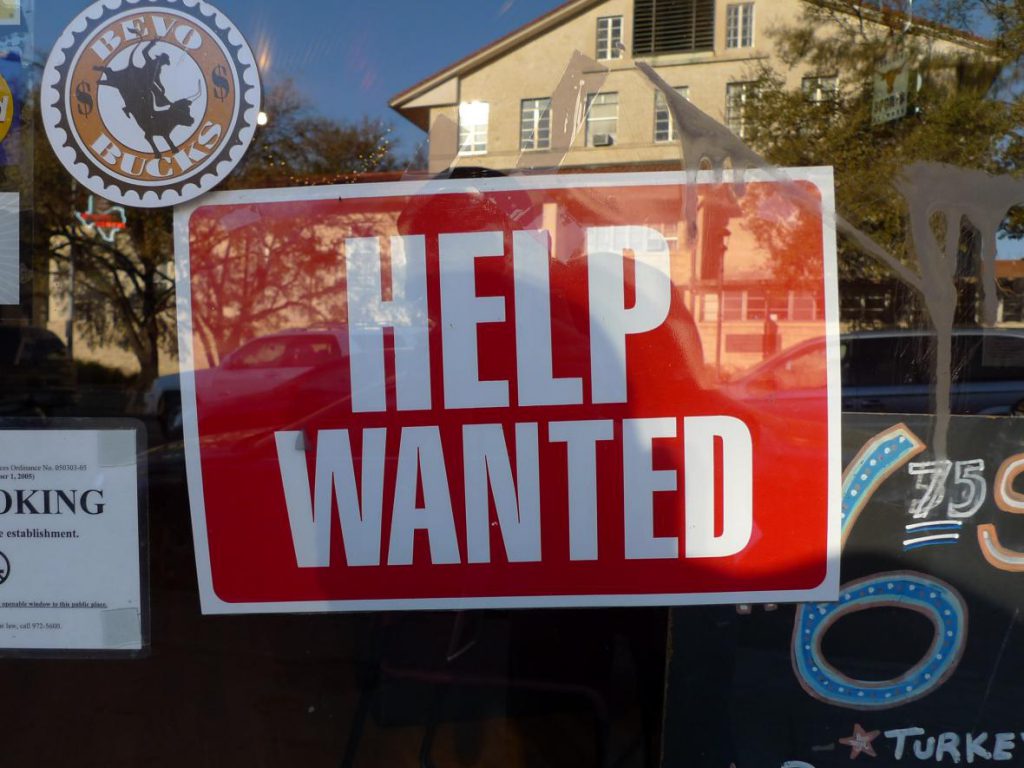Workforce Investments Will Support Economic Recovery
Gov. Evers Recently Announced $130 million investment into workforce development.

Help Wanted. Photo by Andreas Klinke Johannsen (CC BY-SA 2.0)
In recent months and throughout the COVID-19 pandemic, there has been much discussion in our local communities and in the Legislature about the state’s workforce and what can be done to ensure a strong economic recovery.
A new report by the nonpartisan Legislative Council explains our state’s 45 different workforce development programs, which provide assistance through nine state agencies for education, work readiness, job training, job searches, job placement, and work support. The report also includes suggestions and recommendations for workforce development and projections for our state’s workforce needs.
For years, employers across the state have been managing workforce shortage problems, which in many cases were exacerbated by the pandemic. Today, while Wisconsin has one of the lowest unemployment rates in the nation and has been a leader in getting shots in arms, our workforce shortage problem still persists. According to Department of Revenue economists, pre-pandemic levels of unemployment were about 40,000 weekly claims, per a five-year average, whereas currently there are just above 50,000 unemployment claims filed each week. For those who have health concerns, are struggling to find adequate childcare, reliable transportation, or jobs that match their skill sets, or who face other barriers, an immediate return to work may still be out of reach. So, what’s to be done about it?
Last week, Governor Tony Evers announced a new investment of $130 million in federal funds into three workforce development programs to support workers with opportunities and incentivize innovative solutions to workforce challenges. Per the governor’s plan, $100 million will go to a Workforce Innovation grant program to help regions and communities develop long-term solutions to their unique local workforce challenges. Additionally, $20 million will help subsidize training opportunities for unemployed individuals with local employers through the Worker Advancement Initiative, and a new $10 million Worker Connection Program will make career coaches available to help those attempting to rejoin the post-pandemic workforce.
Wisconsin’s small businesses are counting on us to provide relief, security, and bipartisan solutions. It’s with this spirit that, as members of the Assembly Committee on Workforce Development, we reaffirm our commitment to working towards finding solutions that uplift our state and local communities. We encourage our colleagues from both parties to join us in meaningful dialogue and collaboration about workforce solutions we can all agree on, starting with supporting Governor Evers’ significant $130 million investment in local workforce solutions.
Rep. Katrina Shankland (D- Stevens Point), Rep. Christine Sinicki (D- Milwaukee), Rep. Dora Drake (D- Milwaukee), and Rep. Deb Andraca (D- Whitefish Bay) serve on the Assembly Committee on Workforce Development
Op-Ed
-
Wisconsin Candidates Decry Money in Politics, Plan to Raise Tons of It
 Dec 15th, 2025 by Ruth Conniff
Dec 15th, 2025 by Ruth Conniff
-
Trump Left Contraceptives to Rot; Women Pay the Price
 Dec 8th, 2025 by Dr. Shefaali Sharma
Dec 8th, 2025 by Dr. Shefaali Sharma
-
Why the Common Council’s Amended Budget is Good Policy for Milwaukee
 Nov 20th, 2025 by Alds. Marina Dimitrijevic and Russell W. Stamper, II
Nov 20th, 2025 by Alds. Marina Dimitrijevic and Russell W. Stamper, II



















